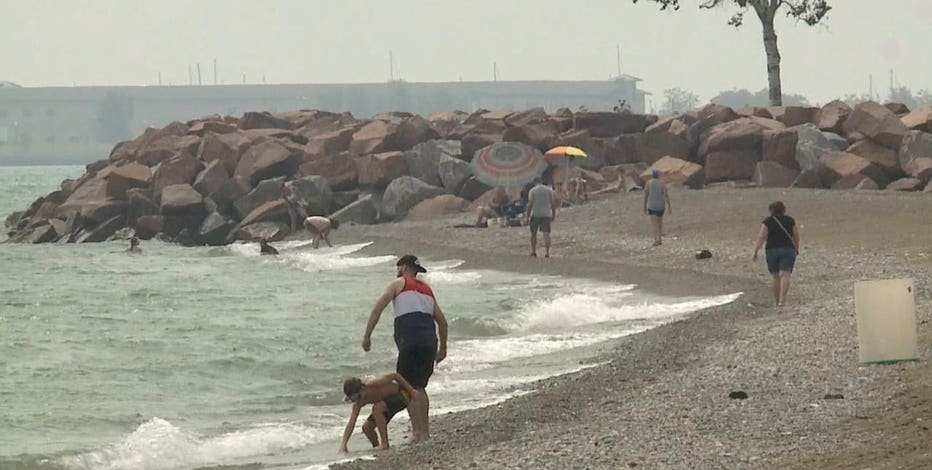Milwaukee sewage overflow, beaches closed

Beaches close due to untreated sewage run off
Sunday morning's flash flood caused the deep tunnel to reach capacity, forcing untreated sewage into our lakes and rivers.
MILWAUKEE - A gloomy Monday, Aug. 9 didn't exactly offer "beach weather" in Milwaukee, but health officials still closed two beaches because of combined sewer overflow after heavy rain over the weekend.
Whenever there is a sewage overflow, it prompts a mandatory closure by the Milwaukee Health Department. On Monday, Bradford Beach and Southshore Beach were impacted.
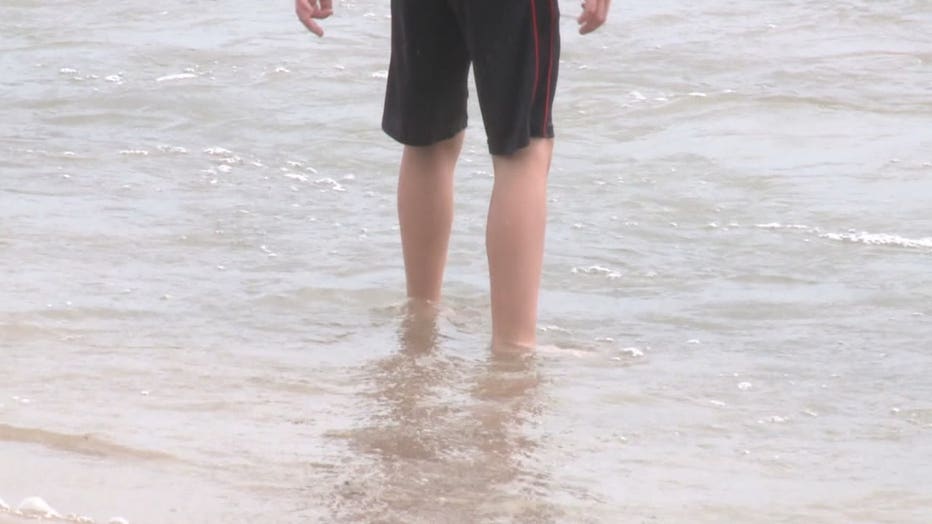
Officials with the Milwaukee Metropolitan Sewerage District said it was the first overflow of the year.
Carol Schumacher enjoyed a moment of reflection along Milwaukee's lakeshore Monday.
FREE DOWNLOAD: Get breaking news alerts in the FOX6 News app for iOS or Android
"I’m native Navajo from Arizona, so this is actually one of our sacred waters that flows through Mother Earth," she said.
She stopped to take videos of the waves, saddened by the reason the beach is closed.
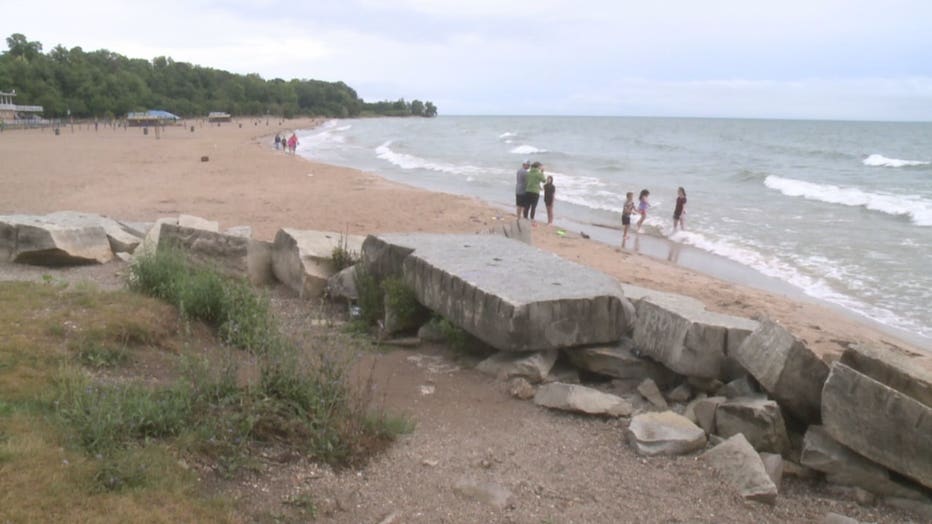
"There has to be a solution. It’s got to be better than putting it in the waters," said Schumacher.
Intense precipitation in a short period of time is triggering a combined sewer overflow.
"To reduce the risk of basement backups, the only way you can do that is to have what’s called an overflow, untreated water that goes through a relief valve out in the system, to the nearest creek, stream or river," said Bill Graffin, MMSD spokesman.
That untreated water includes sewage.
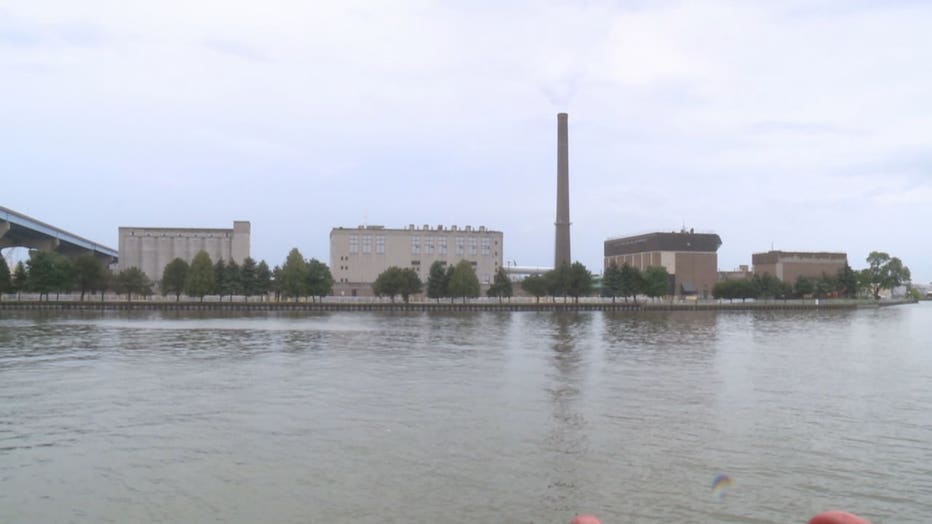
"When we get two inches of rain over 12 or 48 hours, that is typically not a problem," said Graffin. "It’s when you get two to three inches of rain in 20 minutes. It’s the intensity. It’s trying to slam too much water into the sewer or wherever that will end up causing problems."
It’s then the Health Department’s call to close beaches.
As of Monday afternoon, the Jones Island Water Reclamation Facility was at 98%. Graffin says $4 billion in investments over the last three decades have helped to significantly cut down on the number of releases.
"Annually, we are averaging, I think it’s 2.4 since 1994," said Graffin. "Prior to that, it was 50 to 60 every year."
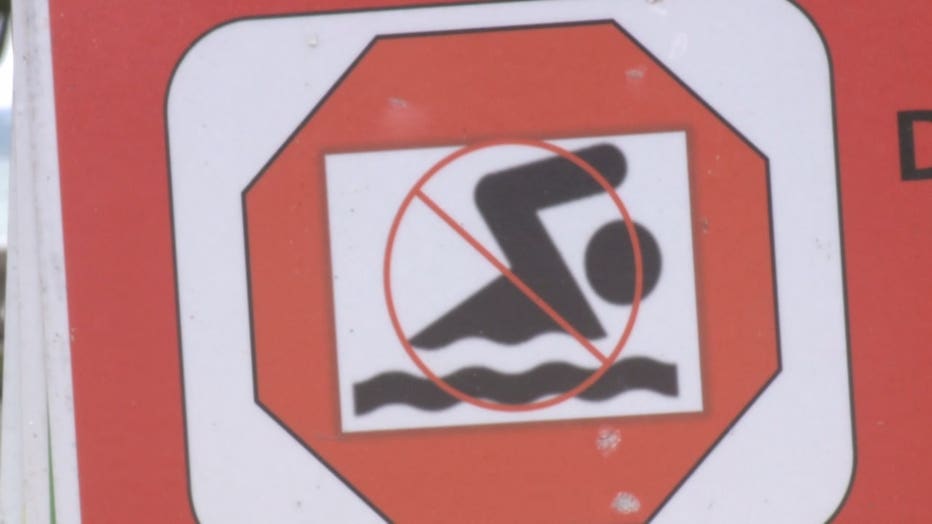
For those still dipping their toes in the water, Schumacher said she hopes for balance.
"As natives, water is sacred to us," said Schumacher. "Water is life, so that’s always been a fight."
A great way you can help out at home is by investing in a rain barrel. That will help cut down on the water that ends up in the sewer, especially during significant rainfalls. Plus, it’s good water conservation and helps the environment.
Featured
Kenosha County water warnings, 2 rescued amid heavy rain
The morning after a powerful storm passed through southeast Wisconsin, members of the Kenosha County Dive team urged people to avoid large bodies of water until things settle down.


